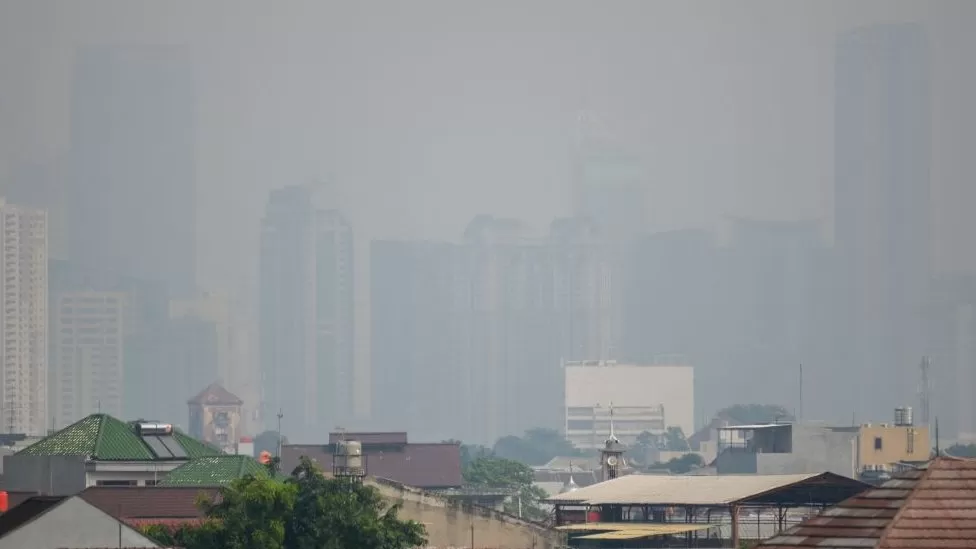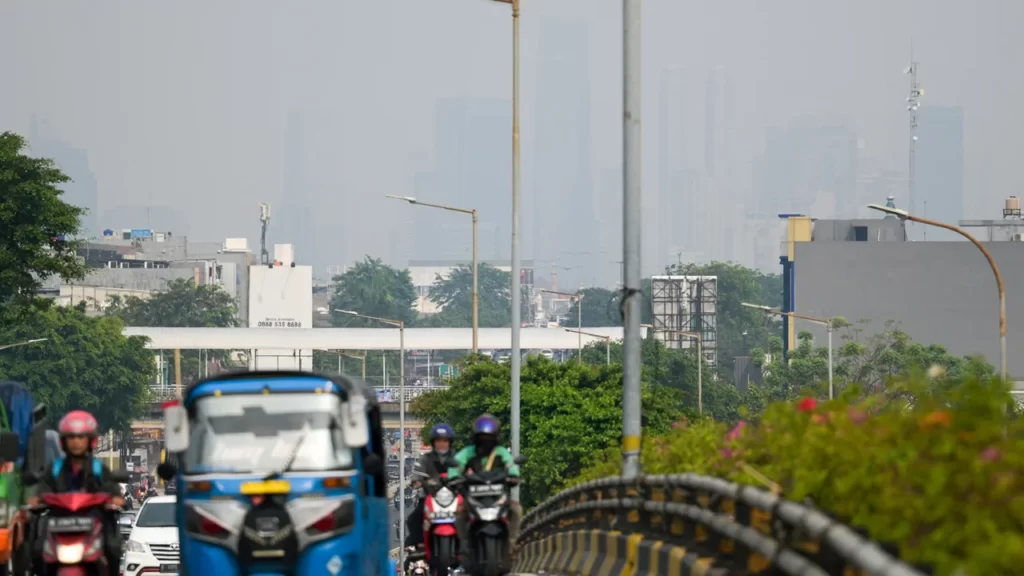
Jakarta, Indonesia – The capital of Indonesia, Jakarta, is currently under the spotlight domestically and internationally for being one of the most polluted cities. With an air quality index (AQI) of 115, the city ranked in the top ten of the most polluted cities globally, IQAir reports. An AQI range of 101-150 is unhealthy for sensitive groups and could lead to potential health risks for the citizens.
The high pollution level is definitely disadvantageous to residents in Jakarta. As the residents inhale a lot of toxic smog daily, this increases the risk of eye and throat irritation and intensifies allergy symptoms. They may also get exposed to various types of diseases, including but not limited to asthma attacks, lung damage, heart attacks, chronic obstructive pulmonary disease, lung cancer, and cognitive impairment.
To prevent the country’s air quality from worsening, the government has placed greater attention and commitment to addressing this problem. As a result, the government, with the Ministry of Health and other involved organizations, suggested and implemented key strategies to improve Jakarta’s and ultimately, Indonesia’s air quality.
One of the strategies the government suggested in reducing air pollution was moving to the Capital City of Nusantara (IKN)–which is located in Kalimantan, Indonesia’s President Joko Widodo said. This strategy would be supported by the construction of Mass Rapid Transportation (MRT) and Light Rapid Transportation (LRT), where all routes must be finished immediately to realize this strategy. He also expressed that the use of electric vehicles is another probable strategy to decrease air pollution in Jakarta.

Another strategy was implemented on August 21, 2023, where half of the civil servant workforce shifted to a work-from-home setup to reduce traffic congestion. Currently, there is no confirmed duration for this work-from-home setup. Students from schools near ASEAN Summit venues will also implement distance learning starting in September, Jakarta provincial government spokesperson Sigit Wijatmoko added. This order was issued by the interim Jakarta Government. Despite this, hospitals, fire, and rescue services or public transport will operate as usual.
Another worth-try strategy was implemented on August 26, 2023, where the police reprimanded, issued a warning, and issued tickets to vehicles that did not pass the emission tests. This was a follow-up from Special Capital Region (DKI) Governor Regulation (Pergub) Number 66 of 2020 that required all vehicles, whether two-wheeled or four-wheeled, to pass the emission test Motorcycles will be fined Rp. 250,000 and cars Rp. 500,000, at most. Police traffic director Sr. Comr. Latif Usman, however, stated that the number of official emissions testing sites is still indefinite. In the meantime, the regional police of Metro Jaya are still looking for suitable places to stop vehicles and conduct checks to avoid traffic jams. However, this policy was considered not solutive and instead burdened the residents. A citizen suggested that the regional police should have provided workshops to educate people, allowing the mentioned fines to be used on an emission test.

Another initiative to combat air pollution came from the Meteorology, Climatology and Geophysics Agency (BMKG) and Technology Research and Innovation Agency (BRIN). They planned to spray water from the top of a few skyscrapers in Jakarta by installing generators. The Head of the Environment Agency, Asep Kuswanto, explained that there was an initiative to utilize Weather Modifications Technology (WMT) to create artificial rain. The drought season is considered to be one of the factors of the high air pollution level in Jakarta, so artificial rain would be a short-term solution because rain will help clean the polluting air particles. As such, they conducted two experiments on creating artificial rain. However, both experiments failed because of the lack of clouds in Jakarta. This notion is considered unable to solve the air pollution problem in the areas of Jakarta, Bogor, Tangerang, and Bekasi (Jabodetabek) due to limited resources and tools, Sigit Reliantoro explained. As the next steps, the central government will select priority areas to implement this “artificial rain” plan.
Meanwhile, Novita Natalia Kusumawardani, the co-founder of Bicara Udara—a people-initiated community active in voicing concerns for Indonesia’s air quality—expressed that spraying water from the top of a few skyscrapers was ineffective. Instead, the government of Jakarta should try to conduct an air pollution identification, supported by valid and accurate data through multiplying low-cost sensors and data calibration. This is considered more effective in the short term.
The government of Indonesia’s commitment to addressing air pollution remains a dynamic and ongoing effort. Despite many challenges, the government has initiated and implemented numerous strategies to reduce the air pollution level. By consistently making efforts, Jakarta strives to improve air quality for the citizen’s greater good.

About the Author
Olifia Rahman, or Olif, is a writer volunteer in AYO POST. As a student at a senior high school, she broadens her experience by joining a few external organizations remotely mostly as a writer. She prefers to convey her thoughts and feelings through written pieces rather than verbally. Aside from writing, she likes to read, listen to music, and take a well rest.